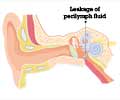A new study in mice has suggested that several genes that play a role in how human body's cells normally auto-destruct may play a role in age-related hearing loss.
Several genes that play a role in how human body's cells normally auto-destruct may play a role in age-related hearing loss, a new study on mice has said.
While more than 100 genes are known to play a role in congenital deafness, scientists have yet to pinpoint any gene in humans that plays a role in presbycusis, or age-related hearing loss."It's very likely that multiple genes contribute to age-related hearing loss. We know the same is true for other diseases, for instance some types of cancer and heart disease," said Robert D. Frisina, Ph.D., the lead investigator and professor of Otolaryngology at the University of Rochester Medical Center.
To begin to understand the genetics of human hearing, the group charted the activity of more than 22,000 genes in mice, comparing young mice to their older counterparts.
The team used two different methods to study gene expression. First, scientists put more than 300 genes through a broad gene-array study, looking at genes whose activity in the inner ear differed greatly between normal mice and those with hearing loss.
Then the researchers narrowed its focus to 35 such genes, employing a newer technique known as a PCR array to measure activity.
Through that test the researchers identified eight genes, all part of the apoptotic process, whose activity differed between the two groups.
Advertisement
When apoptosis happens, a cell's structure breaks up, and the cell disintegrates, with the cell "blebbing," or bulging outward, ultimately blowing apart.
Advertisement
The new study, which is the first one to show that such activity also occurs in the aging inner ear, offers a potential new target as scientists work to find ways to stop age-related hearing loss, such as a drug that would stop cells from committing cell suicide as they age.
Besides genetics, other factors that play a role in presbycusis include sound exposure, medications that can damage hearing, the condition of the brain as it deteriorates with age, and changes in the delicate cells in the inner ear that translate a sound into a signal that the brain "hears."
The study is published online in the journal Apoptosis.
Source-ANI
RAS/SK















